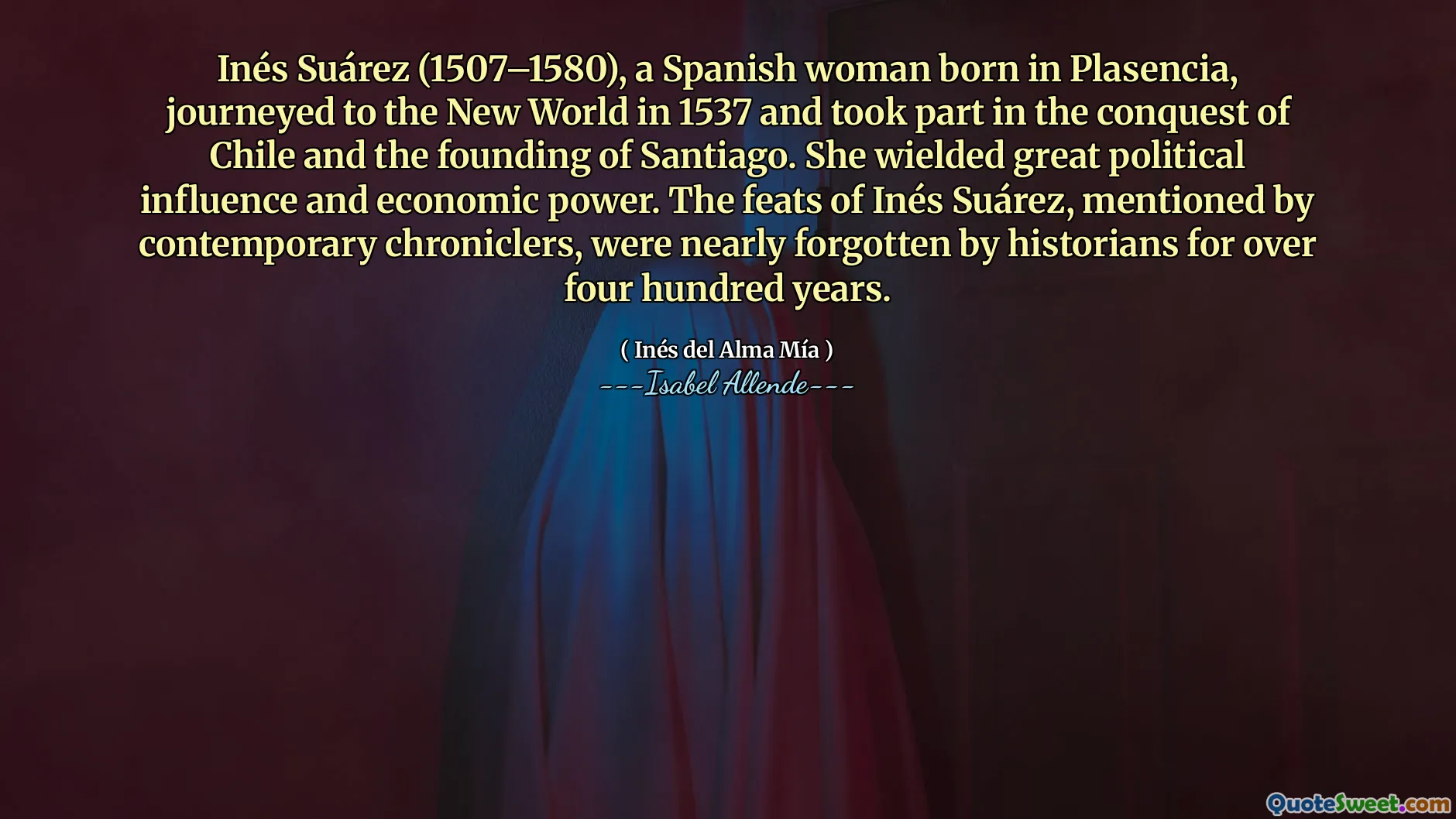
Inés Suárez (1507–1580), a Spanish woman born in Plasencia, journeyed to the New World in 1537 and took part in the conquest of Chile and the founding of Santiago. She wielded great political influence and economic power. The feats of Inés Suárez, mentioned by contemporary chroniclers, were nearly forgotten by historians for over four hundred years.
Inés Suárez's story is a remarkable testament to the often overlooked contributions of women in history, especially during periods dominated by male figures and narratives. Her journey from Spain to the New World and her active role in shaping the history of Chile highlight how women, even in the most challenging circumstances, could leave a lasting impact. The fact that her achievements went unrecognized or were forgotten for centuries points to the broader issue of historical bias, where women's stories have frequently been marginalized or omitted altogether. Reflecting on her influence—politically and economically—challenges us to reconsider traditional narratives of conquest and exploration, which often focus on male conquistadors and leaders. Her involvement in the foundation of Santiago signifies the importance of women in the foundational stories of nations, which are sometimes confined to supporting roles or ignored entirely. Celebrating her legacy encourages a broader understanding of history—one that recognizes diverse contributors and acknowledges the complexity of historical events. Moreover, her story is an inspiration for contemporary discussions about gender equality, reminding us that influence and leadership are not gender-specific but depend on individual resolve and opportunity. Her tale encourages us to shed light on other hidden or overlooked figures from history whose actions have shaped our world, urging a reevaluation of historical canon to incorporate diverse voices and experiences.






